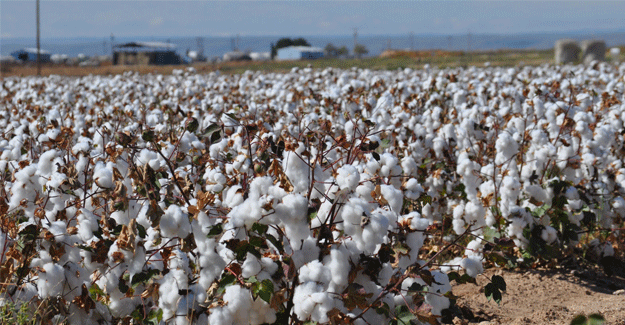US Eddy County Farmers Find New Uses For Cotton
US Eddy County Farmers Find New Uses For Cotton

Although cotton yields in Eddy County saw an increase this year, farmers reported the price continued to stagnate, leading experts to weigh other uses for the crop aside from traditional textiles.
Eddy County Extension Agent Wood Houghton said the industry could see further price struggles if new uses of the crop are not developed. He said researchers are considering furthering cotton oil production, and use in food products.
"I think we're going to see cotton go from a fibre crop to an oil crop," he said. "It's supply and demand. We have to compete with synthetic fibres." About 6,100 acres of cotton was planted in Eddy County in 2017, and increase from 2016's total of 5,700, according to data from the Eddy County Extension Office. Growers reported at about 2.25 bales per acre, with some reporting up to three, records showed. The total reported yield for the county was 13,275 bales, compared to 2016's yield of 11,200.
Records show 2017's cotton crop was worth about $5.1 million. "It was a good year for cotton farming," Houghton said. "Production was looking good, but prices were horrible." Houghton pointed to advances in agricultural technology, especially genetically modified crops, to explain the increase in yield. "Technology has let our yield per acre go up," he said. "That's strictly due to genetic technology." With a decades-long decline in cotton gins in operation in the state, Houghton said most of the bales are processed in Texas. He said Eddy County alone once had 14 cotton gins, but now there are only two. Transporting their harvest to Texas can impact revenue for local cotton growers, adding stress to an industry already in need of change, Houghton said. The price per bale was estimated at about 74 cents per pound, record show, with a single bale weighing an average 490 pounds.
That comes to a total price per bale of about $362.
Farmers believe new uses for cotton could reinvigorate the crop. New innovations in blended fabrics that could combine cotton-based fabrics with synthetic, could lead to a better price as the crop's uses are expanded. Cotton-based products cause less pollution that synthetics by being able to degrade naturally. Polyester fabrics do not break down well when discarded, but organic cotton does.



 textileexcellence
textileexcellence 







